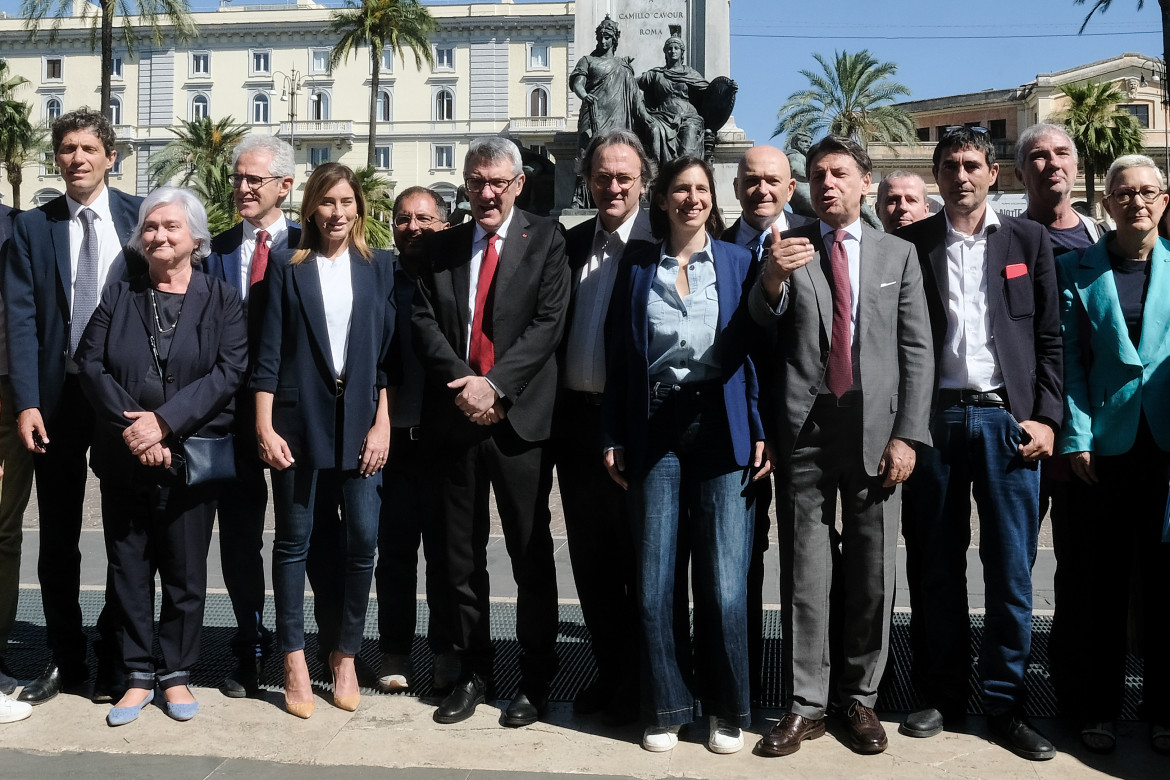Analysis
In the wave of referendum drives, Italians are rejecting differentiated autonomy and the Jobs Act
But the parties are pushing back. Renzi’s party: ‘We made the Jobs Act. Clearly, we will defend it. We will be canvassing for “no” at the referendum even if we’re completely alone.’

The ability to add one’s signature online has given new momentum to referendum projects, some more than others. The deadline for signature collection is Sept. 31, regardless of the date of submission.
Of the 10 proposals on the Ministry of Justice portal, only the referendum against differentiated autonomy has already passed the threshold of 500,000 signatures. The others are far behind, with figures ranging from 6,000 to 20,000 signatures. Thus, barring some unexpected developments, if the Court of Cassation approves the referendum questions, it looks like in 2025 Italians will be called upon to vote only against the Lega-driven project of differentiated autonomy and against Renzi’s Jobs Act.
The collection of signatures for the referendum against the country-dividing Lega project, strengthened by a very large organizing committee, has already gathered more than 500,000 signatures on the website alone. Combined with those from the physical stands, which can be found throughout the country thanks to the organizational abilities of the CGIL union, PD and ANPI, is approaching one million. Then, the union led by Landini has already collected as many as four million signatures against Renzi’s Jobs Act before the opening of the Ministry of Justice portal, which were delivered to the Court of Cassation in July in three trucks for a total of 1,036 boxes.
The very large number of signatures against his law didn’t sit well with Italia Viva secretary Matteo Renzi: “We made the Jobs Act. Clearly, we will defend it. We will be canvassing for ‘no’ at the referendum even if we’re completely alone,” he said on Saturday.
The rest of the center-left is trying to combine forces for the citizenship referendum, which has collected nearly 130,000 signatures in 15 days. The proposal (promoted by +Europa and NGOs such as Italiani Senza Cittadinanza, Libera, Gruppo Abele, A Buon Diritto, ARCI, ActionAid, Oxfam Italia, Cittadinanza Attiva, Open Arms, Forum disuguaglianze e diversità, PSI and Rifondazione Comunista) aims to reduce the years of legal residence in Italy required to apply for citizenship from 10 to 5. If successful, this would be automatically applied to minors. The change would affect an estimated two million people of foreign origin.
The proposal has been supported by, among others, Professor Alessandro Barbero, Mimmo Lucano and Luigi Manconi, and has recently been boosted by PD secretary Elly Schlein and a large number of mayors, from the PD and not only. “We are starting to see a good pace in these last few days,” commented Riccardo Magi of +Europa. “We are calling for everyone to mobilize; but first and foremost, our call is to the political forces and unions: come and join the front line.” Magi is confident the proposal can reach 500,000 signatures by September 31, although there are only a few days left. “At last, the press has started to cover us as well. Before, the Sangiuliano case had left no air time for the more fully political issues,” Magi continues. ”Forza Italia's proposal on Ius Scholae was obviously unserious, the opposition forces cannot support them.”
A proposal that seems very far from reaching the required threshold is that of the Io Voglio Scegliere Committee, which includes, among others, former minister Elisabetta Trenta, former deputy Giorgio Benvenuto, Sergio Bagnasco, jurist Enzo Palumbo and Raffaele Bonanni, a former CISL secretary general. The committee had put forward five referendum questions on April 23 to repeal parts of the Rosatellum electoral law. Although all political forces agree that the issue of electoral law reform is an urgent one, the 5 questions have only collected an average of 19,000 signatures each.
“The media boycotted us,” a disappointed Elisabetta Trenta tells us. ”I wrote to all the editors-in-chief of the newspapers and no one replied. Since they can’t say they don’t agree with the questions themselves, they just prefer not to talk about them, and we don’t have the strength of the unions to set up stalls.” According to Trenta, another big issue was the skepticism of all parties, both in the majority and opposition: “Obviously, the Rosatellum has something for everyone: party leaders want to have a free hand to select the lists of candidates.” As things stand, they would consider it a success to end the campaign with 50,000 signatures, “as a token of support for the effort we made with few means at our disposal.”
The referendum proposals on hunting are also unlikely to reach the goal by September 31: none of the four questions have gotten to 60,000 signatures.
Originally published at https://ilmanifesto.it/sullonda-dei-referendum-il-campo-prova-a-farsi-largo on 2024-09-21
